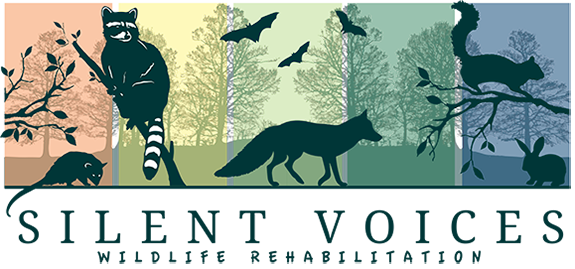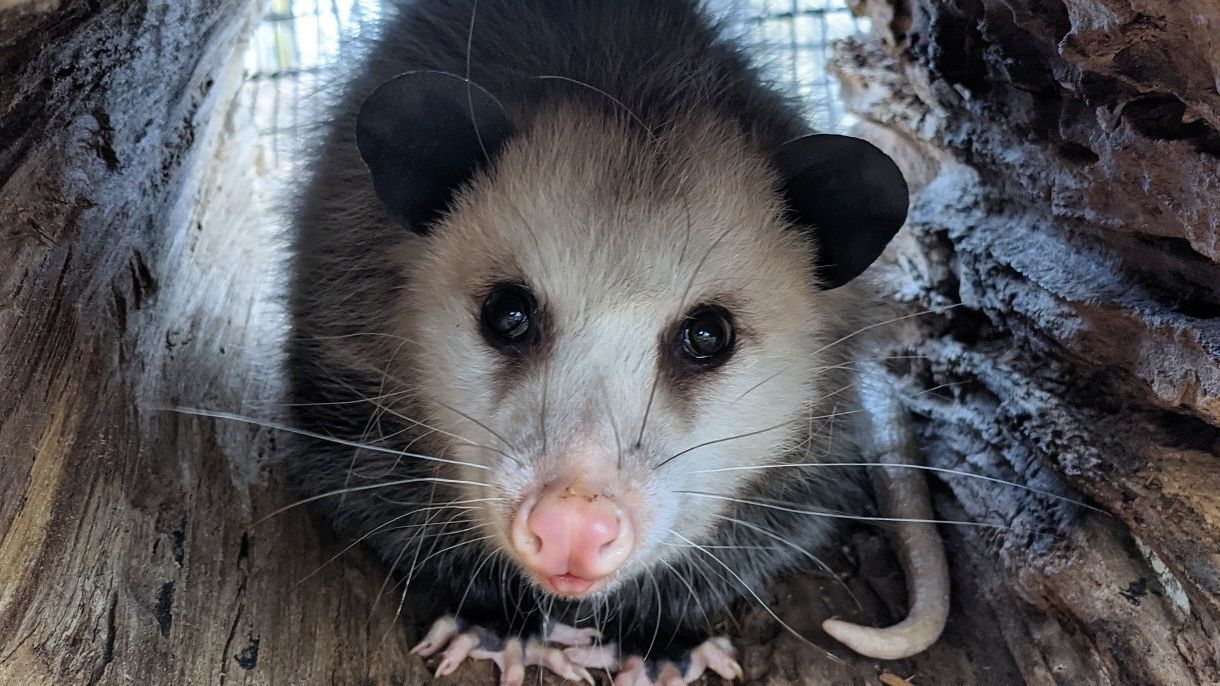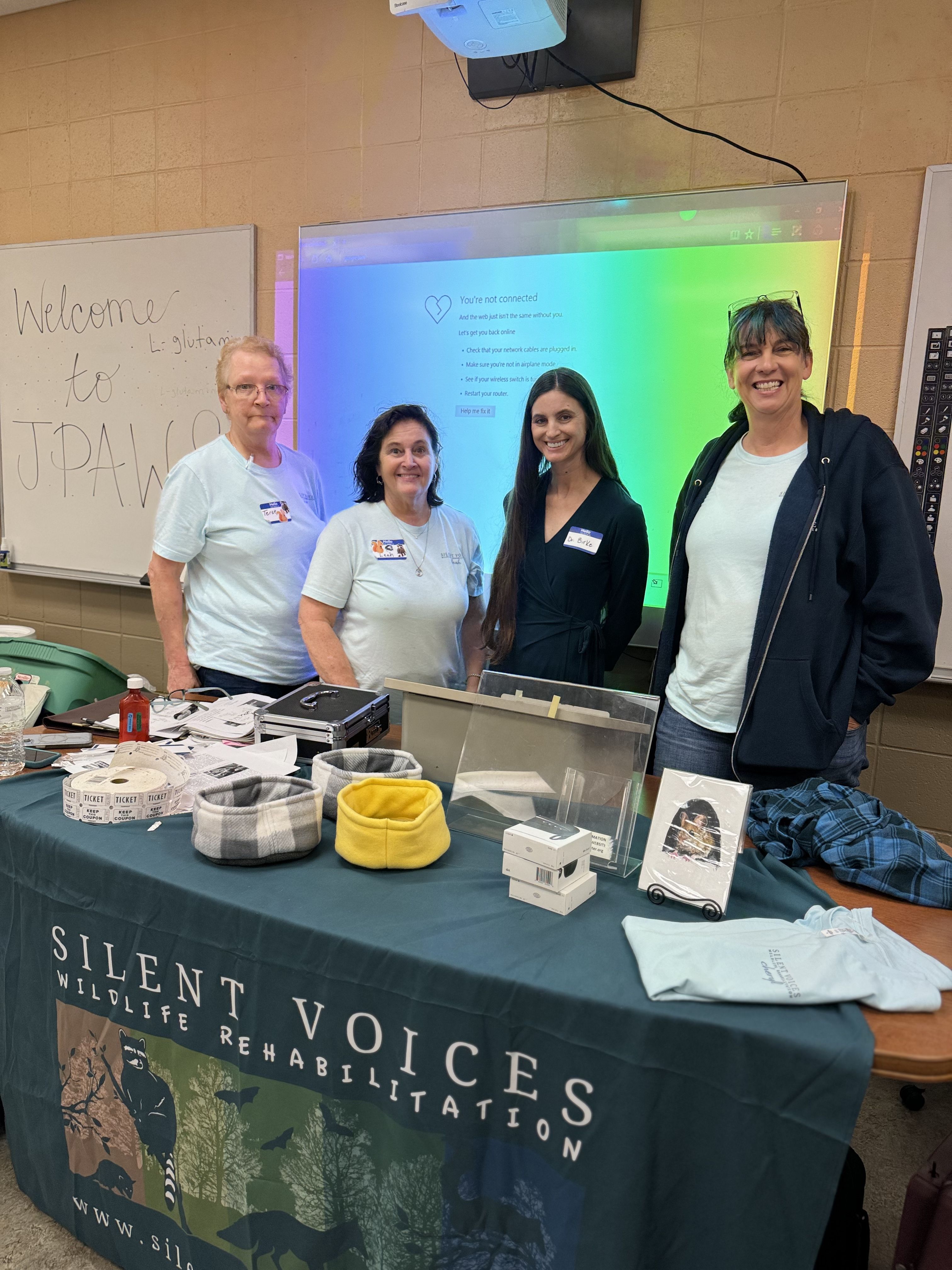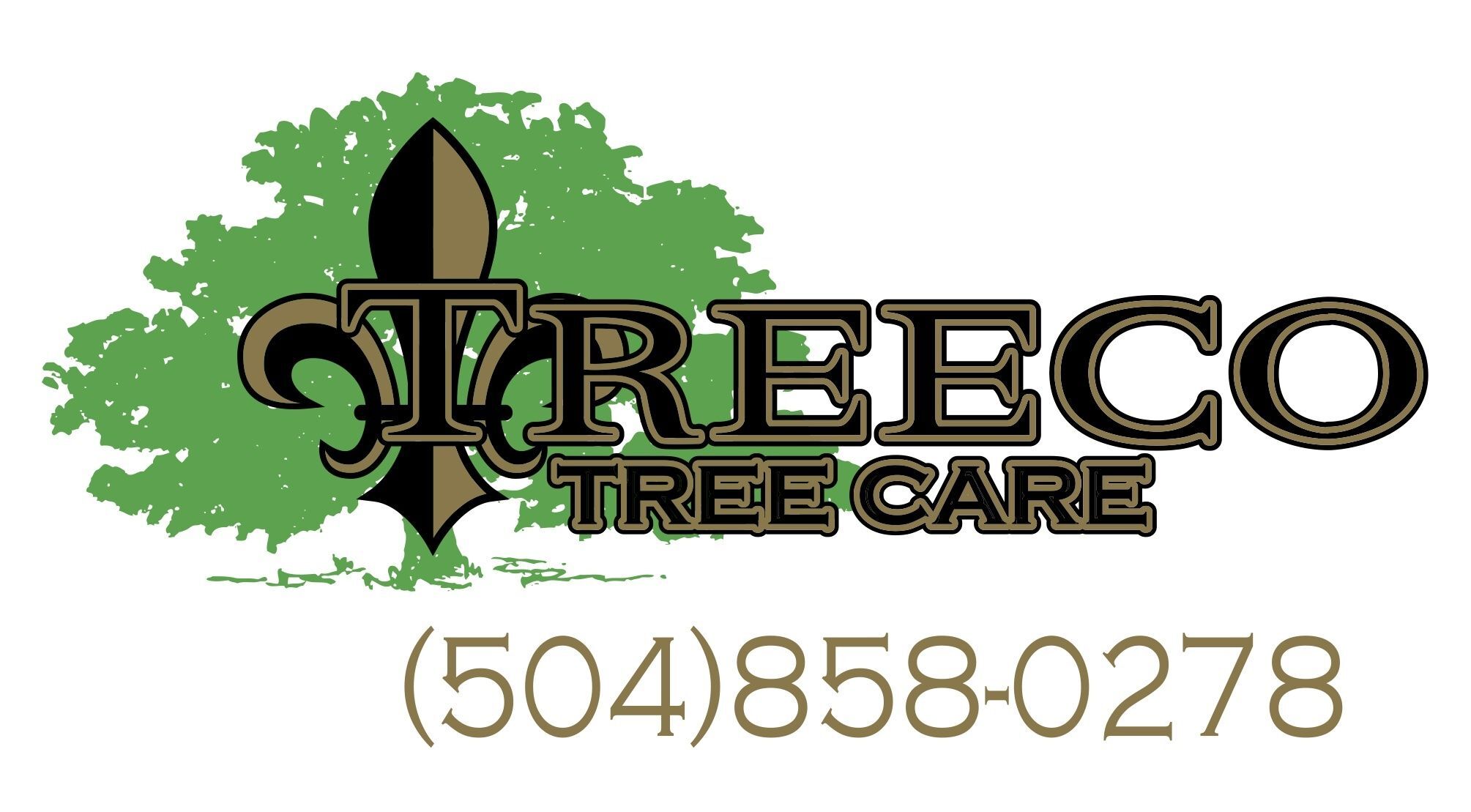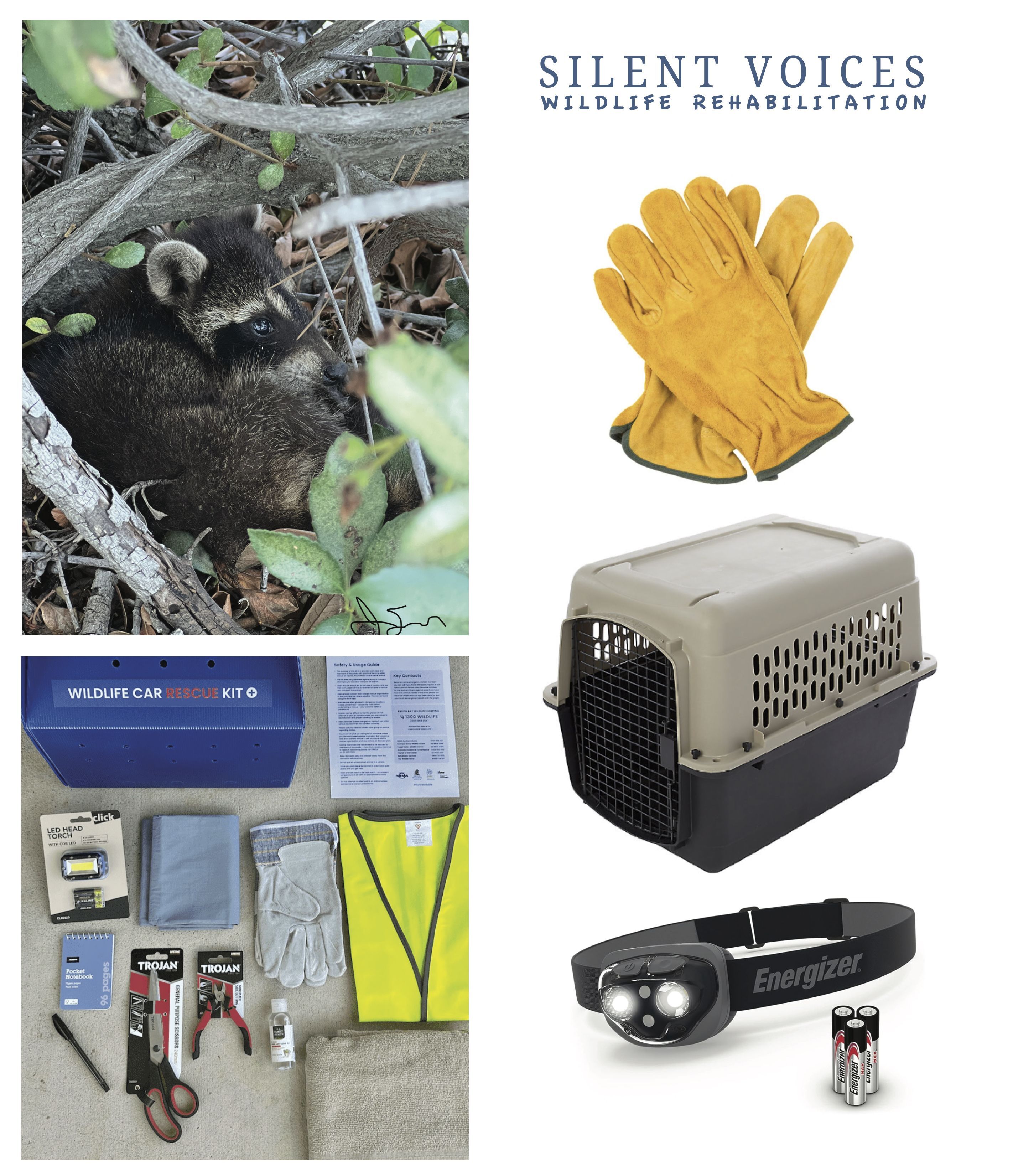
Have you ever accidentally hit an animal while you’re driving down the road or had one just run out suddenly and “freeze” in the middle of the street? It’s an awful feeling…
I experienced a horrifying moment last weekend while driving at night on my way home. It’s very dark back on the road driving into where we live. My husband, who usually drives a little bit too fast, accidentally tapped a little opossum with the side of his car! I immediately felt a tightening in my chest and a pit in my stomach when I realized this had happened.
We were not driving fast thankfully, and the opossum wasn’t ever out in the middle of the road. There wasn’t any way that he could have seen it or avoided it. I saw it, and it was running along the side of the road in a nearby ditch. Suddenly, it decided to swerve and it came out into the roadway. It was unavoidable so it was tapped by the side of our car.
His foot hit the brakes immediately and I jumped out of the car as he pulled over to the side of the road. I quickly opened the door and went back to look for the opossum.
It was super dark and I couldn’t see anything. I returned to the car and rummaged around looking for a flashlight.
Nothing.
I realized how very unprepared I felt on that day which was unusual for me. It wasn’t MY vehicle.
It’s was irresponsible of me not to be sure that our other vehicle was adequately prepared, and the experience has since prompted me to create a wildlife rescue kit for both cars. I’ve always kept a few pairs of nitrile gloves in my glove box, there is always a box or a cat carrier, some gardening gloves, and an old towel in the trunk of the car but I really wanted to be sure now to have everything I could ever need together in one convenient place.
This is just one example of a good all purpose animal rescue kit. Some kits similar to this are even available online for purchase ranging in price upwards from $75.00.
*Do you have a rescue kit set up in your car???
Here’s a list of wildlife rescue items that I added to my car in case of a wildlife emergency.
Wildlife Rescue Kit
Bright color lightweight jacket. Could even be a fluorescent running style vest! The most important thing you’ll need to remember, before you rescue any animal, is your own safety.
Please always exercise extreme caution when approaching an injured wild animal. Please be very careful around moving traffic. A fluro vest will ensure cars can see you so that you can rescue the animal safely. If you are afraid, or unsure about anything at all, call a professional.
Most animals are hit between dusk and dawn, so having a flashlight is a must. I honestly can’t believe that we didn’t even have one in our car!
Flashlight or a headlamp-
It’s SO much easier to search for an injured animal with a flashlight rather than your car headlights, trust me!
Headlamps are really great too because they free up your hands to be able to help an animal that needs you.
Gloves-
You need good thick gloves. Animals have mouths and they can bite hard! Some can bite very hard. I’ve had this experience and I’ll tell you that it’ll only happen to you once without gloves on.
Remember that a rescued animal is very vulnerable and defending itself is something it will do, if it feels that it’s in danger.
Towels-
Or an inexpensive blanket, or both. Once you find the injured animal, and if it’s still mobile, you’ll need to catch it. Throw the towel over the animal and quickly grab it. Don’t let the animal think about it, move quickly.
A towel can also be used to protect your hands if you haven’t got any gloves.
Pillow case-
Pillow cases are an excellent way to restrain and transport small animals. Make sure you have some string to secure the pillow case end too. You do not want a little critter loose in your car while you’re driving!
First aid Kit-
Despite your best efforts to reduce the risk to yourself, wild animals can be very determined to get away by any means necessary. You may still get scratched or bitten. It’s always good to have just a small basic first aid kit on hand just in case.
Pliers, wire cutter, or a small knife.
This is not necessarily essential, chances are you’ll probably not use it, but having some pliers in your kit would be very handy if you happen to find an animal stuck on an object like barbed wire or stuck in some low brush.
Smallish cardboard box or any type of clean animal carrier-Boxes are another great way to secure a sick or injured animal. They can also be used to gently scoop up an animal, creating a good safety barrier between you and your patient.
Be sure to sure your box is closed up well once the animal is placed inside. If you are using a cardboard box, you must be sure that it has air holes in it appropriately sized for the animal.
Nice to have-
These things are not necessary but nice to have depending upon where you might live. A small weighted throw net, a small garden shovel in case of an injured turtle, a list of important phone numbers, nitrile gloves. I always have them on hand because I’m afraid of catching diseases. Even a small notebook and a pen can be very useful in this situation to jot down important information for later.
A few important tips before rescuing a sick or injured animal
*Do not attempt a rescue an animal unless you are confident that you will not be harmed in the process.
*Wild animals become stressed when being chased or handled.
*Be absolutely certain that the animal actually needs your help! Don’t remove it from its habitat just because you think it might be too small. Often the mother is very close by and she is looking for food. You are needlessly kidnapping her baby!
*Never ever touch bats. Call an expert rehabber.
*Don’t try to pick up any snakes unless you are a very experienced snake handler AND you also have a snake bite kit with you! We have many poisonous snakes here in Louisiana, and you are just asking for trouble.
*Try to keep the animal calm. Speak quietly to it in soothing tones. Only handle it if absolutely necessary. Don’t let others touch it, remember it’s not a pet.
*Don’t feed the animal! Do not try to give the animal any food and water. It needs specialized care for its condition and specific foods.
*Please don’t keep the animal and try to treat it yourself. Chances are that you’re doing more harm than good even though you have the best of intention. It must go to licensed rehabber who has the proper knowledge and training.
*Always check any dead animals that you see too, they may have surviving young with them (e.g. in an opossum pouch) or close by them. This is often the case if a mother was hit by a car. Her babies will continue to wait for her close by.
Always exercise extra caution whenever approaching any type of wildlife and remember that you can always call a professional for help. Remember, Silent Voices Wildlife Rescue rehabilitation professionals are always standing by. We can help.
